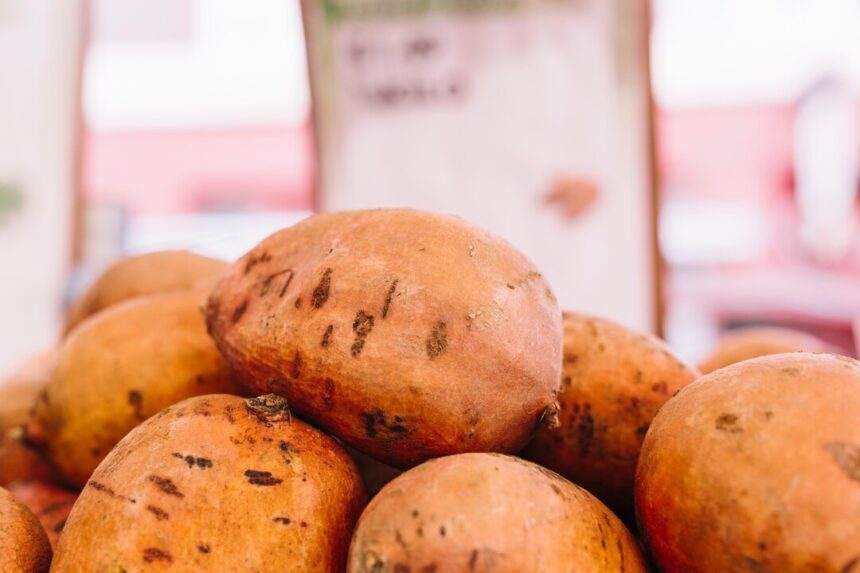Sweet potatoes are a versatile and nutritious crop grown widely in South Africa, offering a valuable source of food security and income for farmers. To maximize the potential of sweet potato cultivation, it’s essential to employ techniques that enhance both quality and yield. From soil management to pest control, here are several strategies that farmers in South Africa can implement to improve the quality and yield of sweet potatoes:
- Selecting Quality Varieties: Choosing the right sweet potato varieties is crucial for achieving high-quality yields. Opt for varieties that are well-suited to the local climate and soil conditions, and have desirable traits such as disease resistance, high yield potential, and excellent taste.
- Soil Preparation and Management: Proper soil preparation is essential for promoting healthy root development and maximizing yield. Conduct soil tests to assess nutrient levels and pH, and amend the soil as needed with organic matter, compost, and fertilizers to ensure optimal fertility and structure.
- Planting Practices: Pay attention to planting practices, including spacing, depth, and timing. Plant sweet potato slips (vine cuttings) in well-prepared beds or ridges with adequate spacing between plants to allow for proper root development and airflow. Planting should be timed to coincide with the onset of the rainy season for optimal growth.
- Water Management: Sweet potatoes require adequate moisture throughout the growing season to ensure optimal growth and yield. Implement irrigation systems such as drip irrigation or furrow irrigation to provide consistent moisture levels and prevent water stress, particularly during dry periods.
- Weed Control: Weed competition can significantly reduce sweet potato yield and quality. Implement weed control measures such as mulching, hand weeding, or the use of herbicides to minimize weed growth and competition for nutrients, water, and sunlight.
- Pest and Disease Management: Sweet potatoes are susceptible to various pests and diseases that can impact yield and quality. Monitor crops regularly for signs of pest infestations or disease symptoms, and implement integrated pest management (IPM) strategies such as crop rotation, biological controls, and the use of resistant varieties to minimize damage.
- Fertilization: Proper fertilization is essential for supplying essential nutrients to sweet potato plants and promoting healthy growth and yield. Apply fertilizers according to soil test recommendations or nutrient requirements based on crop stage and growth patterns. Consider using organic fertilizers or compost to improve soil fertility and structure over the long term.
- Harvesting Techniques: Harvest sweet potatoes at the appropriate stage of maturity to ensure optimal quality and yield. Avoid harvesting too early or too late, as immature roots may be underdeveloped, while over-mature roots may be prone to decay. Use proper harvesting techniques to minimize damage to the roots and ensure maximum yield.
- Post-Harvest Handling: Proper post-harvest handling is crucial for preserving sweet potato quality and extending shelf life. Cure harvested roots in a warm, humid environment for several days to promote skin healing and reduce the risk of rotting. Store cured roots in a cool, dry place with good ventilation to prevent sprouting and spoilage.
- Continuous Monitoring and Learning: Finally, continuously monitor crop performance, yield, and quality throughout the growing season, and be open to learning and adopting new techniques and best practices. Attend training sessions, workshops, or agricultural extension services to stay informed about the latest research and advancements in sweet potato production.
By implementing these techniques for enhancing quality and yield, farmers in South Africa can optimize sweet potato production and contribute to food security, economic growth, and sustainable agriculture in the region. With proper management and attention to detail, sweet potato cultivation can be a profitable and rewarding endeavor for farmers across South Africa.
Join 'Farmers Mag' WhatsApp Channel
Get the latest Farming news and tips delivered straight to your WhatsApp
CLICK HERE TO JOIN






